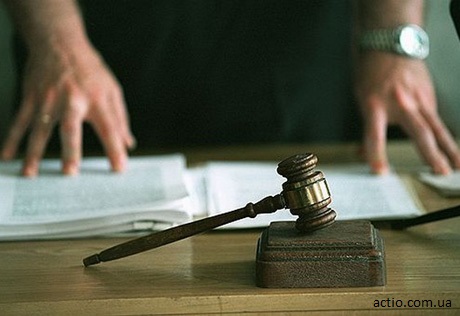Reanimation Package of Reforms initiative: Bill on judiciary and status of judges puts successful judicial reform at risk
The draft Law of Ukraine “On Judiciary and Status of Judges” in the present wording has a number of risks that will hinder proper implementation of amendments to the Constitution and puts successful judicial reform at risk.
This is said in the statement of the Reanimation Package of Reforms initiative (RPR).
The experts stress that the provisions of the bill contain the risk of renewed administrative vertical “governance” of the courts.

“In accordance with Article 20 of the bill, the authority to appoint and dismiss the heads of the courts and their deputies is returned to the High Council of Justice (HCJ). The centralized appointment of heads of the courts by the HCJ under Yanukovych presidency led to total control over courts and judges by his administration,” the statement reads.
Despite the fact the President has no constitutional authority regarding the heads of courts, the bill gives the President the authority to sign the certificates of the heads of the courts and their deputies (Article 51 of the bill). Such a situation is threatening in the perspective of maintaining or restoring the informal practices of influence over the presidents of the courts, since all of them will have to have direct contacts with the Presidential administration, the RPR explained.
Experts offer that the power to appoint court heads and their deputies should remain within the competence of the judges of each court.
“At most, the High Council of Justice may have authority keep the registry of the court heads and their deputies and settle disputes over lawfulness of appointment to such office. It is advisable to remove abovementioned provisions regarding court heads and their deputies and provide for public online registry of holders of these positions,” the RPR experts suggest.
It is also noted in the statement that the presidents have a busy schedule which delays the entry into office of the appointed judges.
The inauguration ceremony depends on presence of the President, which also demonstrates the dependence of judges on the President.
“Only president Kuchma delegated authorities of inaugurating the judges to the heads of regional state administrations and, thus, consolidated their influence on local courts,” the RPR reminded.
The experts consider that the bill does not provide for an opportunity to reorganize the courts of appeal (Article 26 of the bill) and, therefore, to renew the judiciary on a competitive basis.
“This can be done, for example, by introducing the new courts of appeal that combine all jurisdictions. It is also important that non-judges have access to be appointed to courts of appeal. The bill does not provide such an opportunity, so the composition of the courts of appeal will be limited to acting judges, and that all the negative informal practices will be kept at a lower level (Part 4 of Article 26 of the bill),” the experts advise.
If a lot of judges leave courts of appeal as the result of the qualification evaluation, and the vacant posts will be taken up by judges from local courts, it will increase the shortage of staff in local courts, which cannot be filled up quickly.
The document does not also stipulate the procedures for selection of the judges of the specialized Anti-corruption court’s and the new Supreme Court to guarantee their independence.
“The old procedures of selection of judges are kept in the bill. This puts the appointment of judges to the new Supreme Court and the High Anti-Corruption Court under threat of political influence or manipulation of the results of the contest. Instead, it is needed to provide for and describe in detail the special selection procedure involving the civil society and international experts in decision-making for the new judicial institutions,” the experts say.
“This would ensure the most objective results of the competitive selection. Also, the Anti-corruption court should have protected budget with self-administration authority (the bill puts this function under State Judicial Administration),” the RPR experts emphasize, urging the Council on Judicial Reform and other policymaking stakeholders to finalize the text of the bill.








